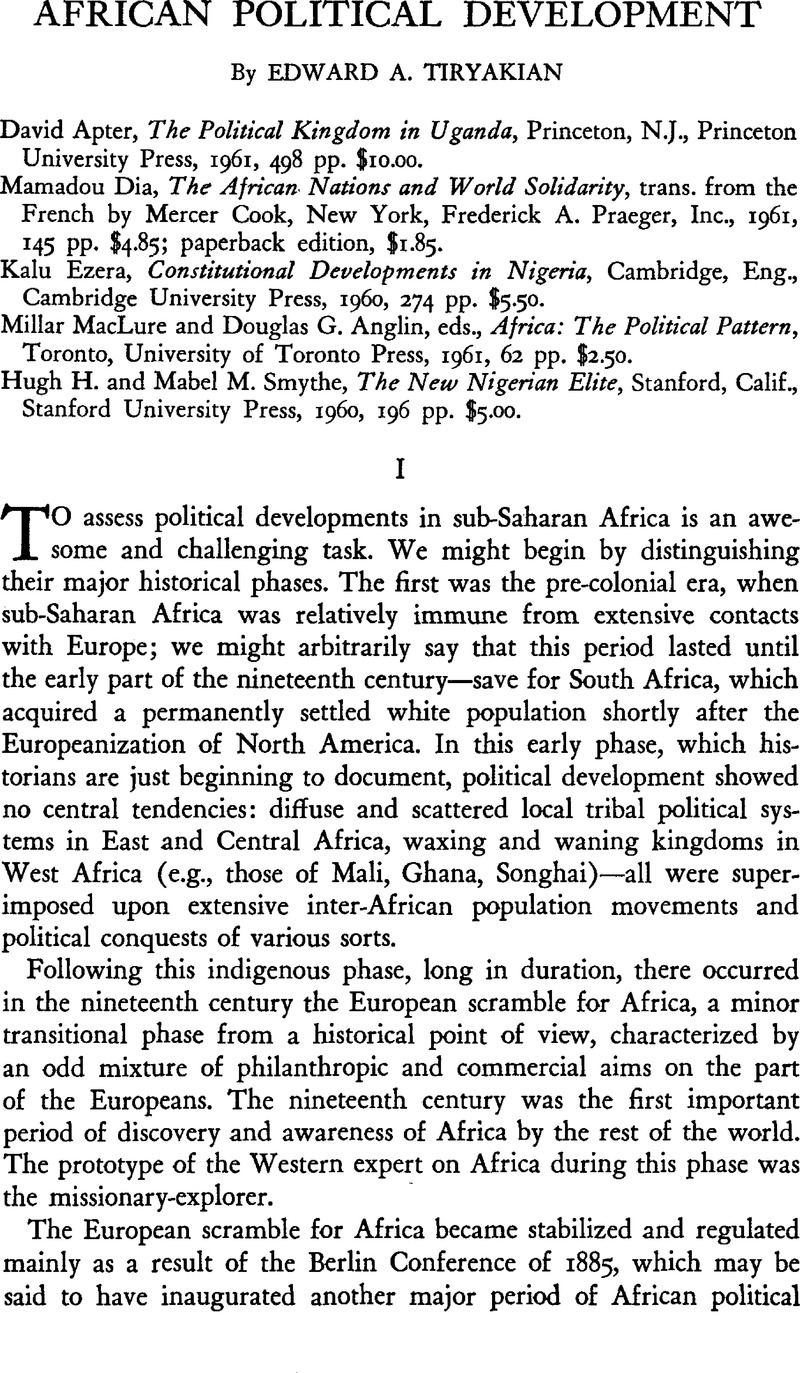No CrossRef data available.
Published online by Cambridge University Press: 18 July 2011

1 The term Tiers-Monde refers to the proletarian, underdeveloped group of nations unwilling to commit themselves to either of the two major camps on the international scene.
2 Coleman, James S., Nigeria: Background to Nationalism, Berkeley and Los Angeles, 1958Google Scholar, chs. 5 and 6.
3 Princeton, N.J., 1955.
4 Ingham, Kenneth, The Making of Modern Uganda, London, Allen and Unwin, 1958Google Scholar; Anthony Low, D. and Cranford Pratt, R., Buganda and British Overrule, 1900–1955, London, Oxford University Press, 1960.Google Scholar
5 Rothchild, Donald S., Toward Unity in Africa: A Study of Federalism in British Africa, foreword by Carter, Gwendolen, Washington, D.C., 1960Google Scholar; Mackenzie, W. J. M. and Robinson, Kenneth, Five Elections in Africa: A Group of Electoral Studies, London, Oxford University Press, 1960Google Scholar; Coleman, James S., “The Politics of Sub-Saharan Africa,” in Almond, Gabriel A. and Coleman, James S., eds., The Politics of the Developing Areas, Princeton, N.J., 1960, pp. 247–368Google Scholar; Hodgkin, Thomas, African Political Parties, Penguin Books edn., 1961.Google Scholar
6 The best work to date in this regard is Langenhove, Fernand van, Consciences Tribales et Nationales en Afrique Noire, The Hague, Martinus Nijhoff, for the Institut Royal des Relations Internationales, 1960.Google Scholar
7 Balandier, Georges, “La Situation Coloniale: Approche Théorique,” Cahiers International de Sociologie, XI (1951), pp. 44–79.Google Scholar